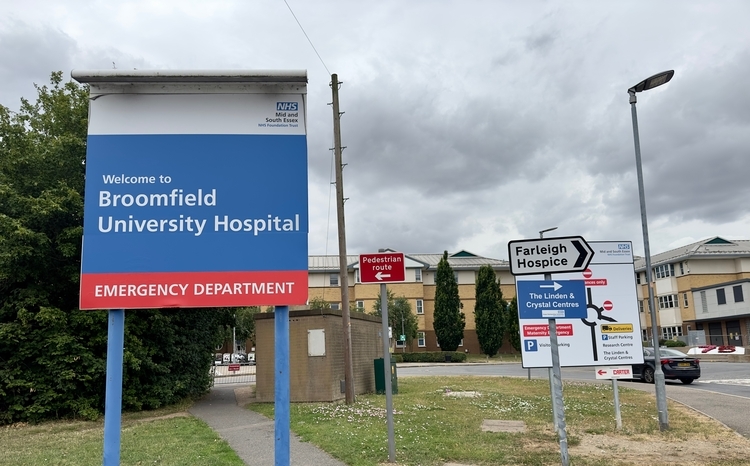Kwo Aims to Make London World’s Best Health System
- 21 August 2003
Everyone needs a goal. David Kwo, the man responsible for delivering 21st century IT to the NHS in London, certainly has one. It’s nothing less that to make London “the leading metropolitan health system globally.”
Interviewed by E-Health Insider as the selection process for the three shortlisted LSPs for London – consortia led by IBM, BT and Lockheed Martin – began, Mr Kwo set out his ambitious vision for the capital. “We think we have good potential to achieve it with this National Programme.”
But the scale and complexity of ICT programme planned is huge. London has 74 trusts, including 32 acute trusts, 10 mental health trusts and 32 primary care trusts, employing 150,000 NHS staff. “It is a tough challenge,” acknowledges Mr Kwo.
“If you compare it to advanced implementations in other parts of the world, and specifically the US where I have particular experience, they tend to be limited to specific organisations. But here we have the opportunity to introduce something on a much more widespread basis.”
However, as Mr Kwo acknowledges, this is something that nowhere else in the world has yet achieved. “That’s why we would be leading, even when we achieve fairly modest implementations, given the scope of facilities we could implement over time.”
Pointing to systems such as order communications, e-prescribing and decision support, he emphasises that the evidence shows these can improve patient safety, reduce medical error and reduce adverse drug events. “If we were to just implement those, as examples, well that in itself would allow us to achieve quite measurable improvements in care.”
Appointed as head of NHS London ICT in December 2002, Mr Kwo’s previous experience includes working for the National Programme on ICRS, programme director for the common EPR programme in Kensington, Westminster and Chelsea, and IT director at Chelsea and Westminster Hospital NHS Trust, where he oversaw the implementation of an IDX EPR system – still one of the few full hospital EPR systems in the UK.
Mr Kwo argues that London has benefited from the early decision by London’s strategic health authority (SHA) chief executives to collaborate on ICT, running back to the appointment of Duncan Selby as SHA chief executive lead on ICT in early 2002. “The SHA CEOs agreed very early on that the ICT resources would be pooled across London,” states Mr Kwo.
Work undertaken by the London ICT team has included producing a common architecture, leading to the first cut of London-wide ICT strategy. Mr Kwo explains the value of this work lay in “speaking to people on the ground”, and “getting a good understanding of our starting point, with respect to infrastructure, legacy systems, and clusters within communities”.
“I don’t think we are very unusual in our baseline situation,” he adds. “We have a wide variety of legacy systems (over 2,000), with some of them particularly long in the tooth.” These include a number of systems developed in-house, mainly by teaching hospitals.
A series of London-wide projects was also established, for procurement, infrastructure and preparation for implementation. “Along with the other clusters, we also prepared our business case, or ready-to-proceed document,” adds Mr Kwo.
Another early step was to define 14 local ‘care communities’ which will form the unit for implementation in London, each based around the boundaries of the old health authorities. “The main purpose was to ensure that we implemented new systems in a manner that bridged the care settings,” explains Mr Kwo. Leads for each of theses ‘care communities’ are due to be finalised in the next two or three months.
Asked to identify the main challenge so far, Mr Kwo points to the pace of change. “It’s been very fast paced, with a lot of intensive working, and importantly we have learned to communicate and co-ordinate efforts at various levels – trust, SHA, cluster, National Programme.”
He adds there is also a need to clarify governance arrangements “relative to the implementation, project, and programme management arrangements…” which will be needed with the introduction of LSPs.
Mr Kwo emphasises that the goal is not to bring in new IT just to improve IT, but to change practices and behaviours. “We just need to work out who is going to play what roles, to achieve that agenda, especially when the LSPs come in.”
On the key issue of ensuring benefits are actually realised Mr Kwo says: “The service is going to have to play a large role in realising those benefits. And happily we seem to be making great strides in ensuring the NHS Modernisation Agency is well baked into those processes.” Specifically, he points to the way the Modernisation Agency is “evolving its role to support SHAs”.
Asked what level of input he and his team had in the process for shortlisting potential LSPs for London, Mr Kwo replies: “We basically supported the National Programme lead on that whole process. The most specific input we provided was the cluster prospectus.”
And on the key question of exactly how much input NHS London ICT will have on the final selection of an LSP for London Mr Kwo comments: “I don’t think it’s advisable for us to say at this stage.” The National Programme media relations consultant present interjects at this point to insist this question be directed to the National Programme.
However, when asked whether he remains confident the LSP contract for London will be awarded by the end of October, Mr Kwo’s answer is an emphatic: “Yes”.
Speaking of what happens next after the LSP contract award he enthuses: “I just think it’s going to be terribly exciting. A lot of people have been waiting for improvements in systems and processes for such a long time,” says Mr Kwo. He adds that initial work will focus on infrastructure and preparation for implementation.
Implementation will begin from November in three waves of ‘care communities’ spread over several months. Details of which ‘care communities’ will be first to start are due soon.
What will be the first benefits NHS staff will see from the programme? Mr Kwo emphasises: “I think we should just be clear that because this programme is phased, not everyone is going to see everything at the same time.”




